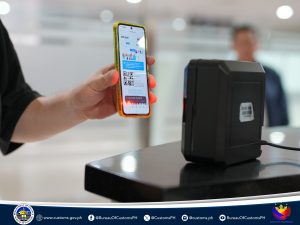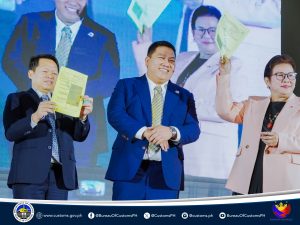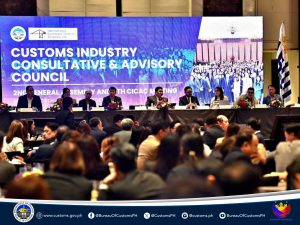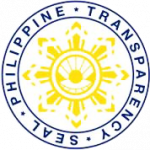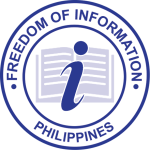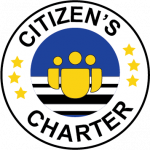- GOVPH
- About BOC
- Issuances
- Aduana Library
- Memoranda
- Memoranda for Reference Values
- Customs Administrative Order (CAO)
- Customs Administrative Order (CAO) 2025
- CUSTOMS ADMINISTRATIVE ORDER (CAO) 2024
- Customs Administrative Order (CAO) 2023
- Customs Administrative Order (CAO) 2022
- Customs Administrative Order (CAO) 2021
- Customs Administrative Order (CAO) 2020
- Customs Administrative Order (CAO) 2019
- Customs Administrative Order (CAO) 2018 and Older
- Customs Memorandum Order (CMO)
- Customs Memorandum Circular (CMC)
- Customs Memorandum Circular (CMC) 2025
- Customs Memorandum Circular (CMC) 2024
- Customs Memorandum Circular (CMC) 2023
- Customs Memorandum Circular (CMC) 2022
- Customs Memorandum Circular (CMC) 2021
- Customs Memorandum Circular (CMC) 2020
- Customs Memorandum Circular (CMC) 2019
- Customs Memorandum Circular (CMC) 2018 and Older
- Custom Special Order (CSO)
- Custom Training Circular (CTC)
- Joint Memorandum Orders (JMO)
- Trade
- News Room
- Port Updates
- HR Corner
- Quicklinks
- Infographics
- Bureau of Customs Webinar
- Auction and Sales
- Bid Opportunities
- Invitation to Bid / Request for Quotation / Invitation for Negotiated Procurement / Notice to Conduct Direct Contracting – 2023
- Invitation to Bid / Request for Quotation / Invitation for Negotiated Procurement / Notice to Conduct Direct Contracting – 2022
- Invitation to Bid / Request for Quotation / Invitation for Negotiated Procurement / Notice to Conduct Direct Contracting – 2021
- Invitation to Bid / Request for Quotation / Invitation for Negotiated Procurement / Notice to Conduct Direct Contracting – 2020
- Invitation to Bid / Request for Quotation / Invitation for Negotiated Procurement / Notice to Conduct Direct Contracting – 2019
- Invitation to Bid / Request for Quotation / Invitation for Negotiated Procurement / Notice to Conduct Direct Contracting
- Bid Documents
- Bid Supplement
- Summary of Awarded Contracts
- Summary of Contracts Awarded 2023
- Summary of Contracts Awarded 2022
- Summary of Contracts Awarded 2021
- Summary of Contracts Awarded 2020
- Summary of Contracts Awarded 2019
- Summary of Contracts Awarded 2018
- Summary of Contracts Awarded 2017
- Summary of Contracts Awarded 2016
- Summary of Contracts Awarded 2015
- Summary of Contracts Awarded 2014
- Summary of Contracts Awarded 2013
- Annual Procurement Plan
- Customs Knowledge Resources
- References
- Gender Equality and Diversity
- Philippine National Trade Repository
- Philippine Tariff Finder
- Authorized Economic Operator
BOC Drives Trade Facilitation Through Transparency and Innovative Reforms in 2024
The Bureau of Customs (BOC) made substantial progress in improving customs processes in 2024, embracing technology and collaboration to help businesses and individuals navigate trade more smoothly. Key regulatory initiatives and digital advancements have contributed to these improvements, with a primary focus on streamlining operation, improving efficiency, and increasing revenue collection.
These changes focus on making it easier to import and export goods while boosting the country’s competitiveness in global markets.
The BOC introduced new measures to make its operations more efficient, including the establishment of the Customs Industry Consultative and Advisory Council (CICAC). The CICAC fosters regular discussions with business leaders and industry experts to improve compliance, resolve issues, and address emerging challenges. In just a year, the CICAC has grown to 59 central members and 122 district member organizations, showing the strong interest and collaboration from the industry.
One of the most significant advancements this year is the implementation of the ATA Carnet system, a game-changer for businesses engaged in international trade. This globally recognized instrument streamlines customs procedures by allowing the temporary admission of goods without the need to pay duties or taxes. Functioning as a universal customs pass, the ATA Carnet replaces a maze of paperwork with a single, standardized document that facilitates seamless movement across borders. By cutting bureaucratic red tape, reducing costs, and expediting cross-border movement, the ATA Carnet enhances trade efficiency and unlocks greater global market opportunities for businesses.
The BOC also strengthened trade relations with South Korea by implementing the Philippines-Korea Free Trade Agreement (PH-KR FTA), which was officially signed by President Ferdinand R. Marcos Jr. through Executive Order (EO) No. 80. This agreement allows businesses to enjoy lower tariffs on many goods traded between the two countries. To make the process easier, the BOC issued a new guideline, Customs Memorandum Order 11-2024, which helps businesses access these lower tariff rates by ensuring that the goods meet certain requirements. This move aligns with the government’s goal to strengthen the Philippine economy through enhanced trade relations and greater access to global markets.
Additionally, the BOC achieved notable progress in the implementation of its Authorized Economic Operator (AEO) Program. Five companies – Sony Philippines Inc., Toyota Motor Philippines Corp., Coca-Cola Europacific Aboitiz Philippines, Inc., Panasonic Manufacturing Philippines Corp., and Brother Industries (Philippines), Inc., – have been fully accredited under the program. Meanwhile, two companies – namely I.E. Medica, Inc. and DKHS Philippines, Inc.,– were issued pre-screening certificates. The program has also seen growing interest, with 18 companies expressing their intent to join. The AEO Program is a key initiative aimed at enhancing supply chain security and streamlining trade facilitation for trusted businesses.
The BOC is ushering in a new era of efficiency and transparency through bold digital reforms. With the launch of Overstaying Cargo Tracking System (OSTracker), the ATA Carnet Monitoring System, and the upgraded Enhanced eTravel System, trade processes are becoming faster, smarter, and more responsive. These initiatives reflect the BOC’s commitment to modernizing its services, fully aligned with President Ferdinand R. Marcos’ vision of a digitally driven government that works for the Filipino people.
By embracing innovation and cutting unnecessary bureaucracy, the BOC is not just improving trade efficiency—it is transforming the way government serves businesses and citizens alike. Each step forward brings us closer to the realization of a Makabagong Aduana sa Bagong Pilipinas—one that is modern, transparent, and built for progress.
ABOUT GOVPH
All content is in the public domain unless otherwise stated.


